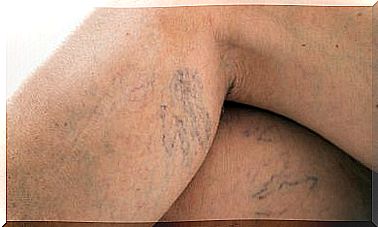Remifentanil: Dosage And Precautions
Remifentanil is a medicine that belongs to the opioid family and has short-acting sedative and analgesic properties. Therefore, it is indicated and used mainly during surgeries and painful procedures.
It is a synthetic selective opioid receptor agonist ; specifically, of the μ. Although we will see it later, it works up to 15 times faster than fentanyl, another opioid drug from which remifentanil is derived.
What are the recommended doses of remifentanil?

The use of this opioid is approved for both children and adults. However, depending on the use that is going to be given, and also depending on the characteristics of the patient, the doses will vary.
In this sense, we have to differentiate whether remifentanil is to be used for the induction of anesthesia, for the maintenance of it or to relieve postoperative pain. It can also be used for analgesia in monitored anesthetic care and coronary bypass surgery.
Let’s see, therefore, the different doses used for each situation:
Induce anesthesia
To achieve this goal, remifentanil is administered intravenously at a dose of 0.5-1 mcg (microgram) per kilogram of patient weight per minute.
Maintenance of anesthesia
In this case, a differentiation must be made between children and adults. In the first type of population, infants older than two months, remifentanil will be administered together with nitrous oxide through a continuous intravenous infusion of a dose between 0.4 mcg / kg / min and 1 mcg / kg / min.
Children between the ages of 1 and 12 years will take remifentanil with other inhalation agents as a continuous infusion of a dose between 0.05 to 1.3 mcg / kg / min.
For adults, it is administered by supplemental intravenous bolus doses that can be administered every 3 minutes or so. In addition, it can be prescribed together with a hypnotic or other volatile medication through a continuous infusion at doses of between 0.05 and 2 mcg / kg / min.
Analgesia during the immediate postoperative period

During this period the use of the bolus is not recommended. Remifentanil is prescribed by continuous intravenous infusion, as in other situations, with a dose ranging from 0.025 to 0.2 mcg / kg / min.
Remifentanil can be given in 3 different ways when used in this situation:
- With a single dose intravenously over 90 seconds with a dose of 1 mcg / kg.
- With a continuous intravenous infusion started 5 minutes before the administration of the local anesthetic with a dose of 0.1 mcg / kg / min.
- Through a continuous intravenous infusion after the administration of the local anesthetic at a dose of 0.05 mcg / kg / min with a range between 0.025 to 0.2 mcg / kg / min.
Surgery bypass coronary
Surgery the bypass coronary is a technique used in medicine aims to improve the circulation of the arteries and other blood vessels when developed an atheroma.
During this procedure, remifentanil can be administered with the goal of inducing analgesia at a dose of 1 mcg / kg / min. This drug is also used as maintenance of the same through an intravenous infusion of a dose equal to that of induction, but with a range between 0.125 to 4 mcg / kg / min.
In addition, during maintenance of analgesia, supplementary doses of 0.5 to 1 mcg / kg can be given in bonus. Finally, in the postoperative period in the ICU, remifentanil is administered by intravenous infusion at a dose of 1 mcg / kg / min with a dose range of 0.05 to 1 mcg / kg / min.
Precautions for use of remifentanil

When using this medicine, a series of precautions should be taken into account, such as:
- In spontaneously breathing patients, remifentanil bolus cannot be administered.
- Caution should be exercised in morbidly obese patients.
- This medicine has adverse effects that affect the circulatory system, so weakened patients may have more problems. Special caution must be exercised with this type of patient.
- It is recommended to administer other analgesic medications one hour before withdrawing treatment with remifentanil.
Conclusion on remifentanil
Remifentanil is used in hospitals to induce, maintain and control pain states, as is the case in many surgeries.
Consult with your doctor any questions you have regarding this medication and always mention any known allergies to medications that you have in order to avoid complications.









